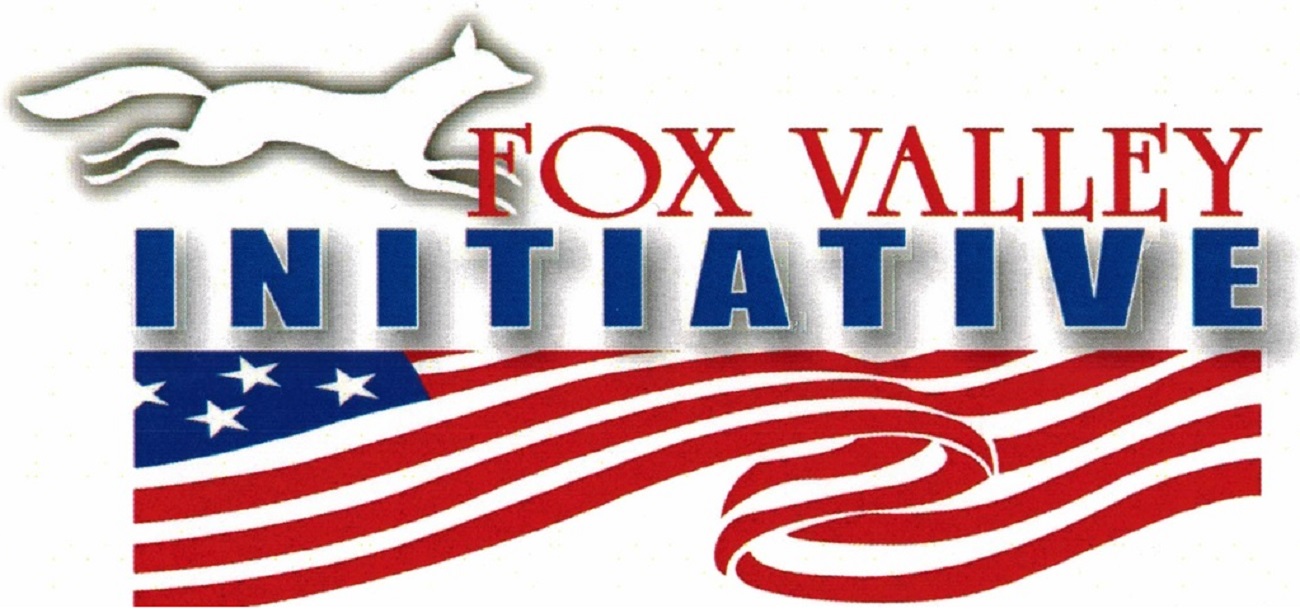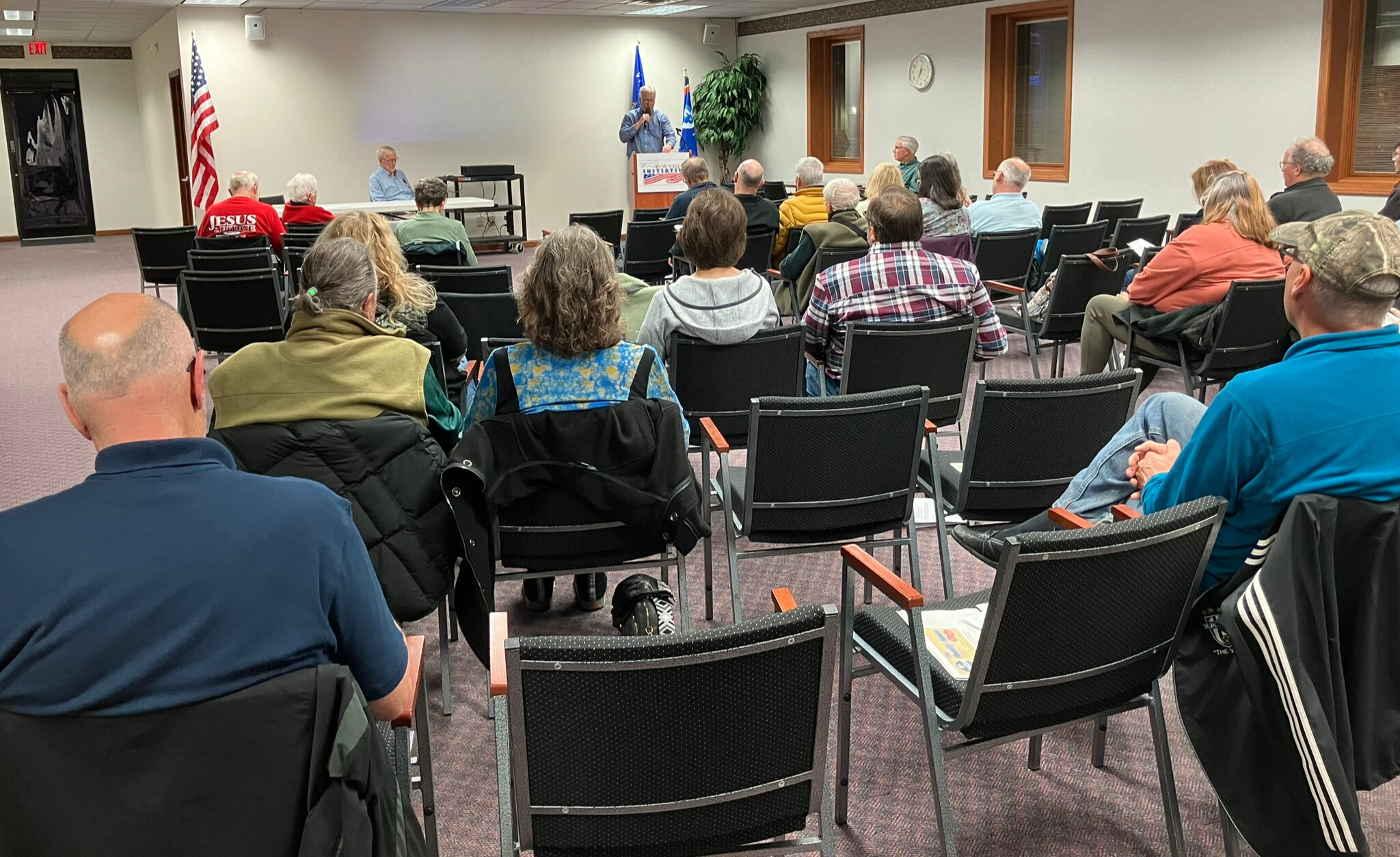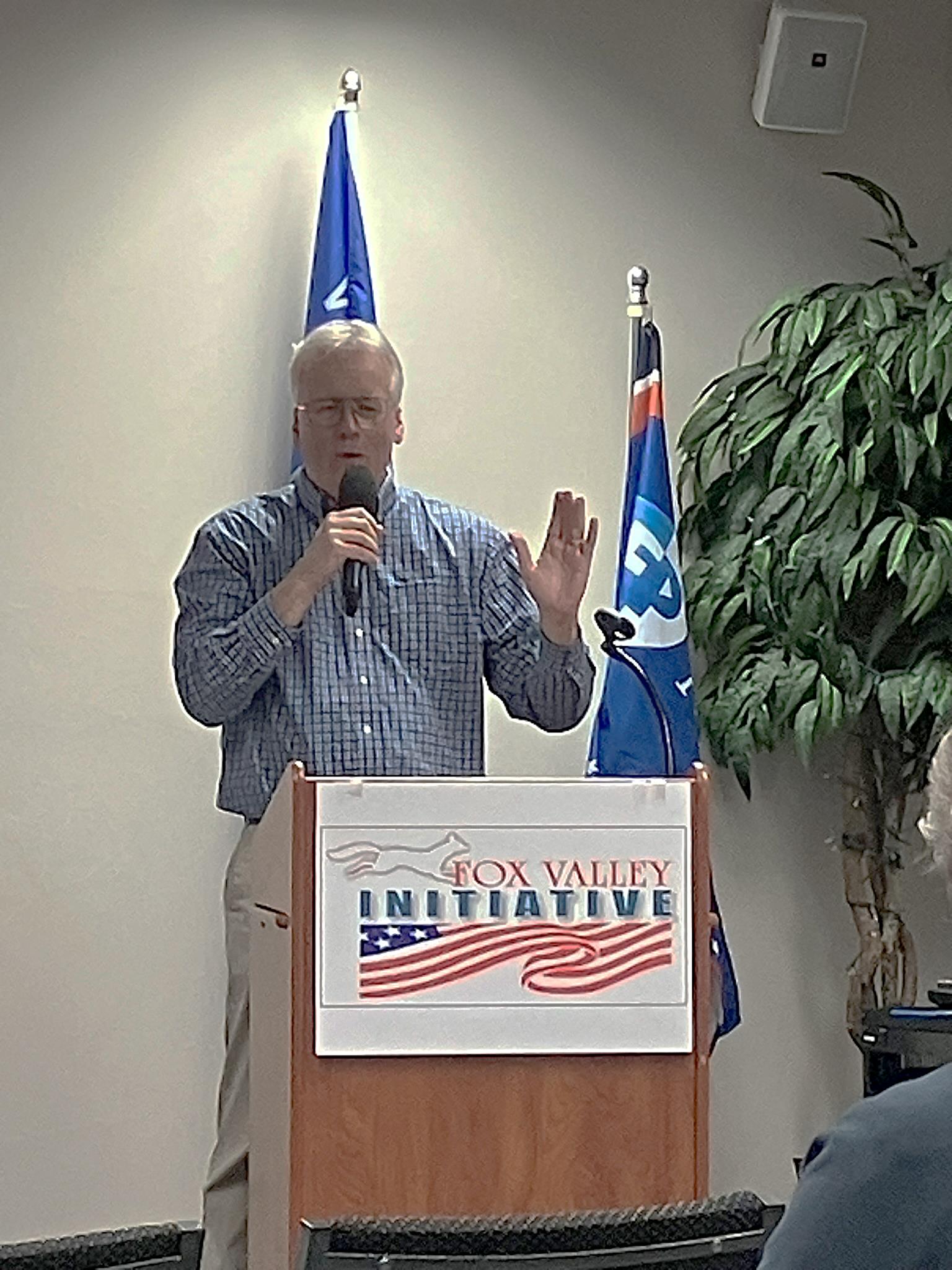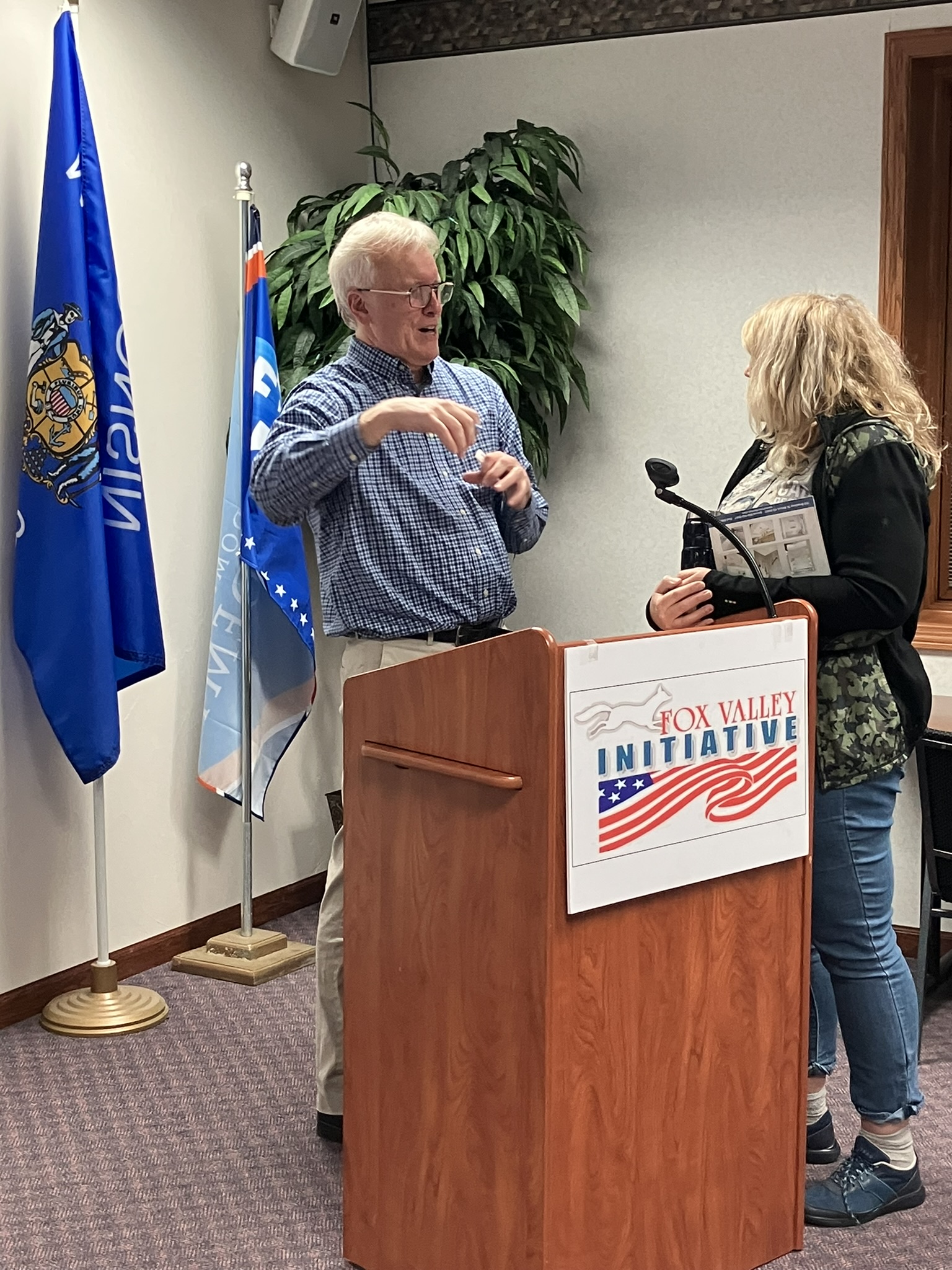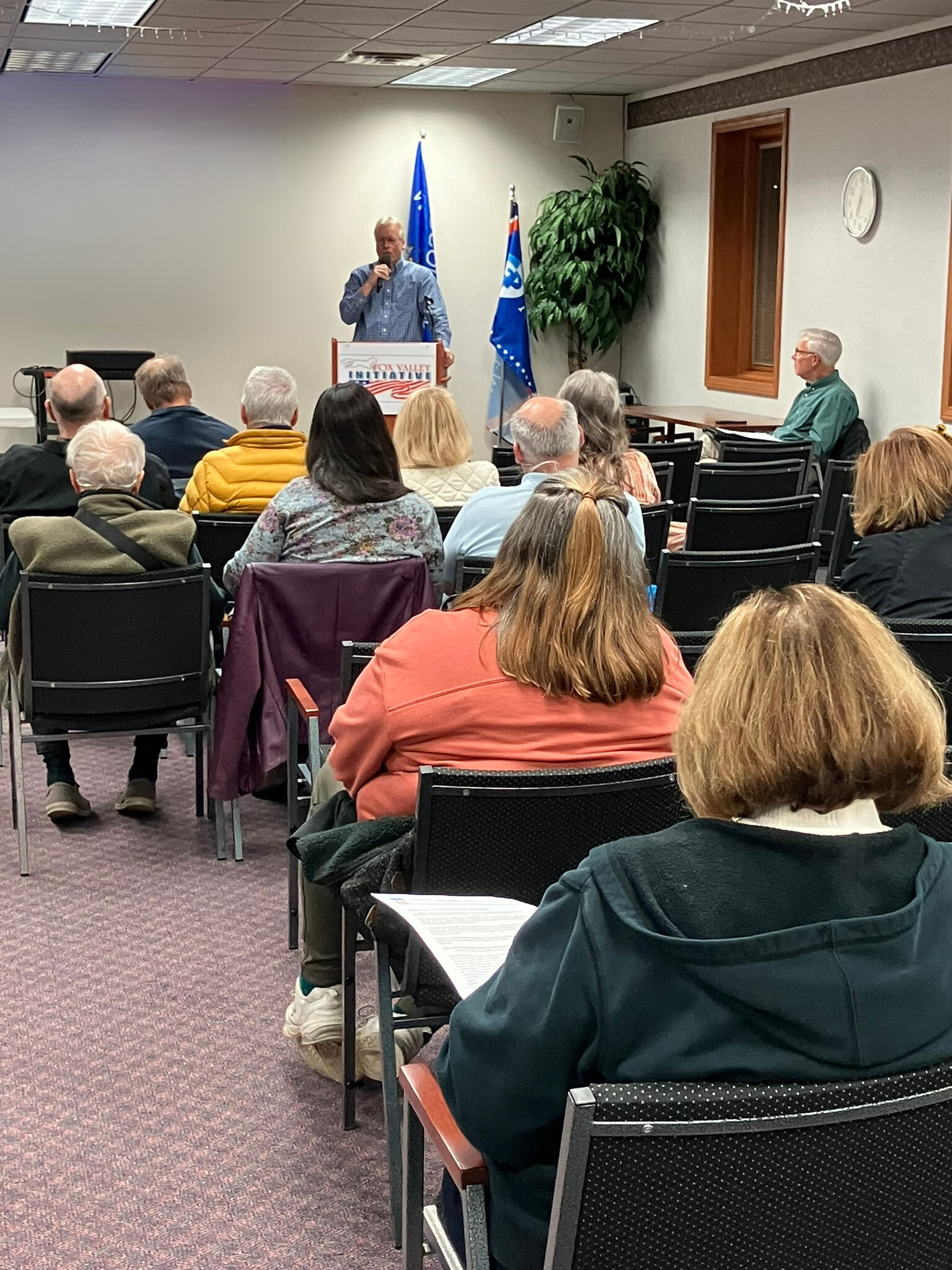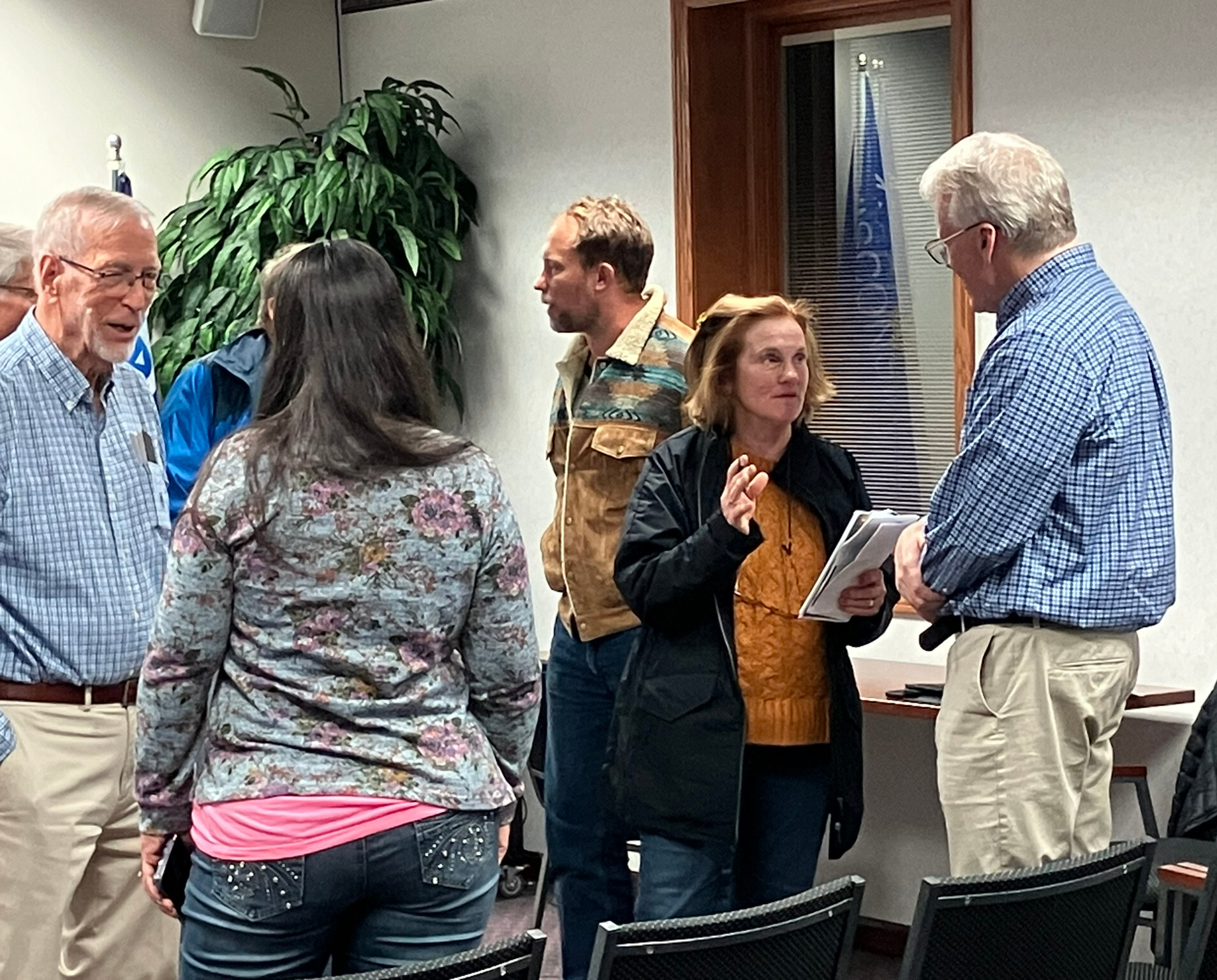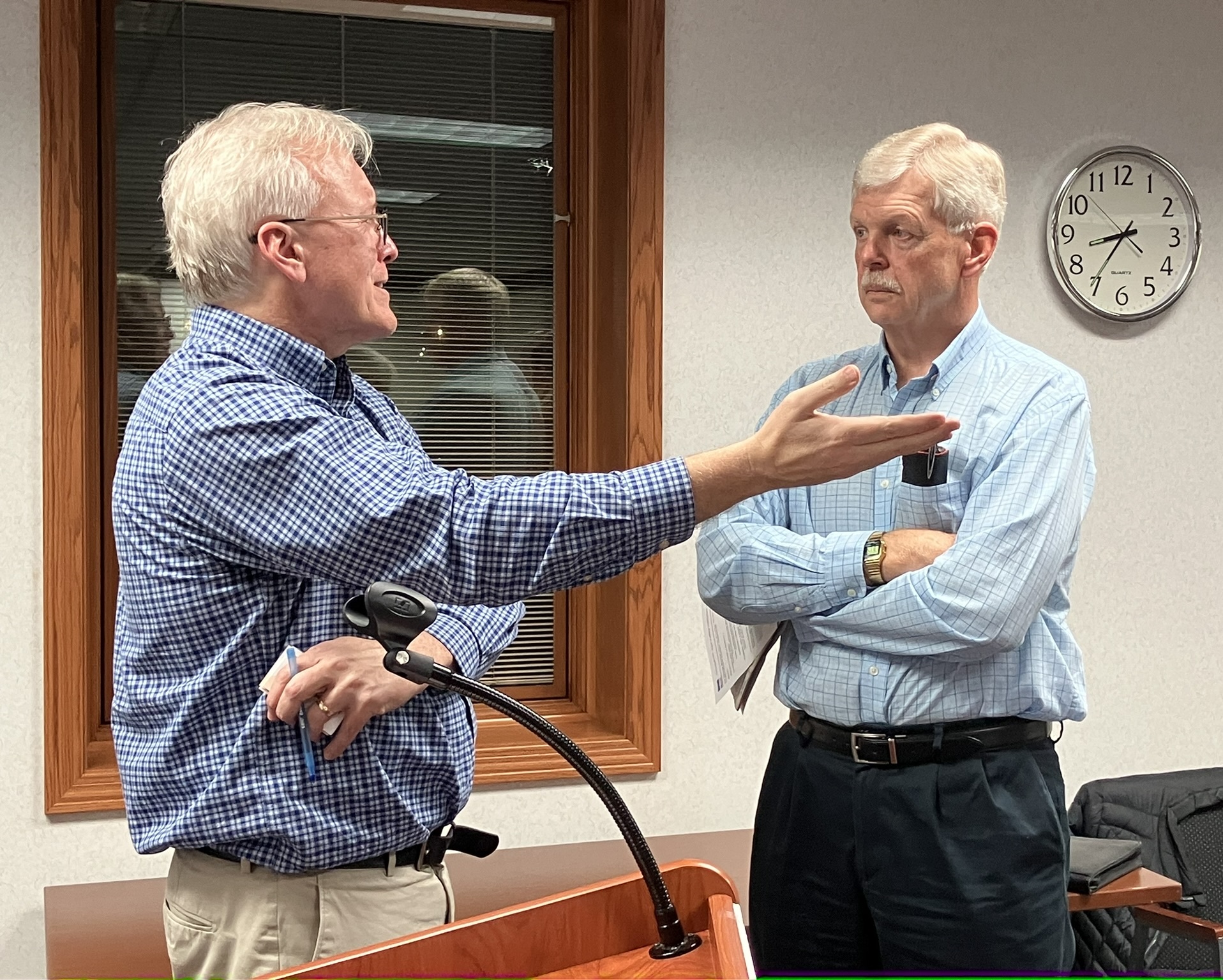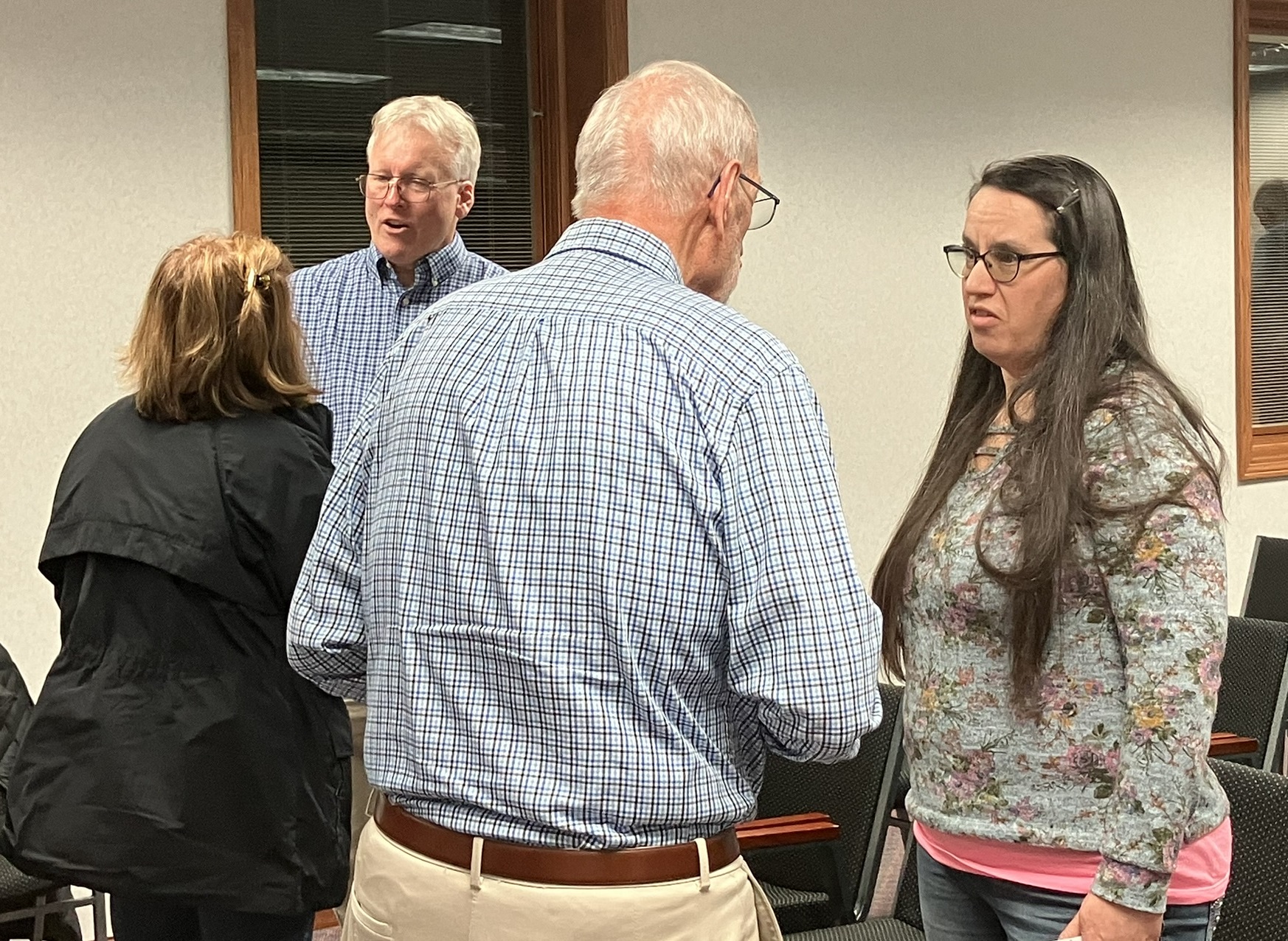Thirty-five people attended the November 6 meeting of Fox Valley Initiative, held at Freedom Project Academy in Appleton, to hear a presentation by John Pudner, president of Take Back Our Republic Action Fund. He addressed several aspects of election integrity — including a couple interesting stories about election fraud in other states — and made the case for a special type of ranked choice voting known as Final Five Voting.
Note: For those of you interested in hearing more about Final Five Voting, Pudner will be debating Heather Smith of the MacIver Institute on Tuesday, November 14, at 6:30 p.m. Learn more here. DEBATE CANCELLED
And for those of you interested only in the photos, skip to photos here!
Pudner reminded everyone that “Trump was not the first candidate to contest a presidential election result,” although the media seems to have forgotten that fact.
He noted many elections have been riddled with fraud. He provided an example of how to pay people to vote:
A person holding money to pay other people goes in to vote first. He takes a ballot, punches it to register votes for the candidates he wants, but doesn’t turn the ballot in at the counting machine. He steps outside and provides the pre-punched ballot to a person in line who wants to get paid. That person takes the pre-punched ballot and also picks up his own unpunched ballot. He puts the pre-punched ballot into the counting machine and takes the unpunched ballot outside, where he gets his money. The guy with the money punches that ballot, hands it to the next person who wants to get paid for his/her vote, and the cycle continues.
Pudner also described following vans on election day, noting
you can’t find a van to rent on election day because the Democrat Party has rented them all. A van full of people pulls up at a polling place; everyone climbs out, votes, then gets back into the van ... which moves on to another polling place, where the same people get out and vote again.
He said Wisconsin’s adoption of a voter I.D. law in 2015 solved the problem of Chicago Democrats coming up to Wisconsin and voting.
Pudner said the biggest remaining problem in Wisconsin is same-day voter registration. This especially impacts voting on college campuses, where Democrats knock on dorm-room doors to encourage students to vote even if they’ve voted absentee in their home states. With same-day registration, there’s no way to check whether the student has previously voted at home.
In 2021, a constitutional amendment to authorize same-day voting was on the ballot in New York. That amendment, known as Proposal 3, was defeated, with 56% of voters preferring to keep the state’s 10-day registration rule in place. New York voters also rejected Proposal 4, which would have permitted universal vote-by-mail.
Democrats’ willingness to exploit campaign finance loopholes is also a big problem, Pudner said. He described ActBlue, a pass-through political action committee that raises billions of dollars on behalf of Democrats and left-wing causes. The website prominently features a continuously updated “ticker” that, at the time of this writing, reported more than $12.5 trillion raised through the ActBlue website since its inception in 2004. According to the website, “14,167,137 Democratic donors have saved their payment information with us via an ActBlue Express account.”
Pudner noted ActBlue does not allow its credit card processors to check the zip codes and CVV numbers for credit card payments made on the site. That makes credit card fraud much easier, he said. He also said he asked a programmer to investigate whether Act Blue could be used to make donations anonymously; within 24 hours, the programmer was able to write a program that would interact with ActBlue to do just that.
Peter Bernegger of Election Watch, Inc. has investigated the use of “smurfs” to launder large sums of money by making numerous small donations to liberal PACs, committees or directly to candidates’ campaigns. (Concerned you may have been smurfed? Check here.)
The Left, Pudner said, “simply has more billionaires than we do.” Democrats can afford to spend millions of dollars trying to get conservatives to vote for someone other than the Republican candidate. Candidates from the Constitution Party, Libertarian Party, “Pro-Life Party,” etc. benefit from spending on their behalf intended to split the Republican vote. They even spend money in Republican primaries, funding the “weaker” candidate who they think might be easier to beat in the general election. He suggested this happened in the most recent Wisconsin Supreme Court race, where Dan Kelly may have benefited from spending by outsiders who calculated he would be easier to beat in the general election than Jennifer Dorow would have been.
